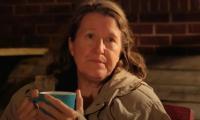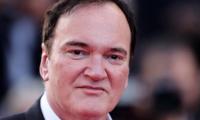Versatile as an actor and simple as a human being is how you can both describe and distinguish Noor Ul Hassan from his contemporaries. He won millions of hearts as the stay-at-home son-in-law Ashiq Hussain in the popular Ramazan comedy TV series, Ishq Jalebi. At present, he is starring in five dramas that are on air. Among them is playing the role of a protective father in Qayamat, a Sufi mystic in the magnum opus Khuda Aur Mohabbat (Season III), a Qazi Sahab in the riveting social justice drama Dil Na Umeed Toh Nahi. To add variety to his ever-expanding resume, he is also starring in love triangle soaps like Kasa-E-Dil and Yaar Na Bichray.
An experienced and credible performer, he has been a member of Pakistan’s now-flourishing entertainment industry for two decades.
Starting his television journey as an actor in the 1990s, Hassan has touched upon a myriad of genres within the medium. His first appearance on television came about when he was in school - as a chorus singer in 1986 for a Naat recitation for 12 Rabi Ul Awal on PTV. In his first acting project, he essayed a character that appeared in two episodes of the 1995 sitcom Teen Bata Teen, which was written by Adeel Hashmi and directed by Jawad Bashir. This was followed by his breakthrough sitcom, Wrong No., written by renowned satirist, Muhammad Younis Butt. Though he has many stories and anecdotes to share, he is just as reluctant about giving interviews. However, in this rare and candid conversation, Noor Ul Hassan talks about his journey, a keen interest in scriptwriting, thoughts on the industry, his upcoming projects and a lot more. Excerpt from the conversation:
Instep: You do not agree to give interviews easily. Why?
Noor Ul Hassan (NUH): Giving interviews reminds me of what Shoaib Mansoor said to me when I used to request artists to come on my show, and today my opinion on interviews is the same as Shoaib Mansoor. He had said to me about 15 years ago, ‘I’ve made an entire film that speaks my thoughts for me, what more do you want me to say?’ So, I firmly believe that my work should speak for me, my characters should become a voice for my thoughts and that should suffice anyone looking for information on me or my artistic work.
Instep: In today’s rapid advancement of technology, why is your digital footprint and social media presence technically non-existent?
NUH: Thank God that’s the case! My absence from the internet is a very conscious and deliberate decision, so are my efforts to be a digital and social media recluse. I am very happy to not be on a single social media platform. I started my career with PTV and there was no social media back then. And this is strictly my personal opinion which applies only to me: I feel we are already very divided as a society, as a nation and as an industry, and social media is yet another tool that propagates divisiveness and stimulates insanity. Hence, I have no desire to be part of such a medium. People think anything on the internet can be considered reliable information.
However, online knowledge is questionable and no one can vouch for the credibility of so much information floating aimlessly in cyberspace. People are so naive, ignorant and impressionable that they tend to believe things like news channels telecasting crime reenactments as live telecasts. One has to be very careful what one says and shares online.
Instep: Do you feel this deliberate digital distancing hampers your connection with your audience or obstructs the publicity and marketing of your projects?
NUH: I feel that the importance of publicity, marketing, social media and the significance of one’s virtual existence is just like our blood pressure, it should remain 120/80. If it goes overboard, it can kill you or lead to cholesterol, strokes, etc. We live in a world that possesses atomic and nuclear weapons that can destroy our planet ten times over. I think we need to delve deeper and see what is at stake for us. I also feel like if we have to publicize, justify and market a project we are a part of, then we are not really sure of the work we did. I know this is a debatable topic given today’s era and times have changed, but I still think my body of work should do the talking, not me.
Instep: How did you transition from anchoring to acting?
NUH: After I did several projects as an anchor, I felt there was a transition. Anchoring became more about acting, so I thought why not make a complete shift and perform holistically as an actor rather than mix the two. There was a time when I thought it was better to be a good anchor rather than a bad actor, after which I preferred being a decent actor instead of succumbing to poor anchoring. Your audience wants you to grow and achieve new heights; one can’t complete graduate school and then seek admission in 8th grade all over again.
Instep: You have seen a colossal shift in the television industry. What do you feel is the most prominent change?
NUH: Earlier there was one channel that had a monopoly over viewership. With the privatization of television and an influx of soaps, serials and dramas, the thing that has suffered the most is content. Creative work is sacred and should be done with the same level of sanctity. I am reminded again of what Shoaib Mansoor sahib told me: ‘If an actor wants to work selectively, his or her kitchen should not run on acting’. This is very true, one should have another source of income because otherwise, one will never be able to say no with dignity and will have to compromise on one’s creative choices.
Instep: Do you feel audiences today want to watch low-quality soaps and poorly written content on television or is it the creators, producers and channels that have left viewers with no choice?
NUH: First and foremost, one must always remember that the primary role of any prolific screenwriter, actor, director or artist is to uplift the mayaar (standards) of its viewers; it’s not about stooping to their level and make their understanding of content deteriorate further. I’m reminded of what Munnu Bhai said when he went to India and was asked what has happened to our Pakistani dramas and why has our level of storytelling stooped so low? He promptly said, ‘We are on a commercial break!’ (pun intended). Commercialization has eaten and consumed us through and through, and we really need to exit this catch-22 situation, where creators create poor content to generate money and then use the same profits to generate more such formulaic stories with the hope that it will generate even greater amounts of revenue.
Instep: In your opinion, what impact does this kind of commercial storytelling have on its consumers?
NUH: Our stories, especially stories told through mass media and dramas that are essentially part of the mainstream entertainment industry, are intrinsically like boomerangs: as you sow, so shall you reap. Society will imbibe and get influenced by the content they consume; there is no doubt about that. If money and marketing gimmicks are going to dictate the content that people consume and thereby distort a viewer’s reality, audiences will inadvertently mirror whatever they watch.
Instep: Do you feel experienced and veteran actors such as yourself are getting typecast after a certain age, particularly based on their appearance?
NUH: This is a time for a revolution in the industry; there is an ongoing change where even the protagonist needs to now change their appearance to look believable or to be able to embody a character role. Looks will only get you so far. Clean-shaven, contoured looks and fair skin will only get you the opportunity to get a foot in the door. After that, your skill is the only tool you can rely on. In my opinion, this is the time for real actors who are relatable, who have studied their craft, for NAPA graduates and theatre artists. I will add however, we cannot get happy by simply changing Fair & Lovely’s name to Glow & Lovely. Let’s stop deceiving ourselves. The journey from fair to glow is not going to resolve the issue.
An interesting fact is that our subcontinent’s predominant wheatish skin complexion is a beautiful colour; it is camera friendly and is intrinsically unique, attractive and alluring. In the West, people strive to tan and achieve our skin tone! We need to capitalize on our strengths, be self-forgiving and self-accepting. One Mahira Khan and one Fawad Khan are enough - everyone need not strive to be like them.
Instep: After a long journey as an actor what do you want to do next?
NUH: A lot of people have told me that I should try my hand at writing and begin writing scripts. I do not know if this is a barrier I will be able to cross, but this is definitely on my bucket list.
Instep: What kind of stories would you like to tell as an aspiring scriptwriter?
NUH: I believe that a story in its truest essence should not stem from an incident or a news headline. That won’t make for an engaging story. A story begins long before an incident has occurred and it actually gives birth to that news headline. We have begun to showcase incidents and news headlines in our stories and dramas. There are so many issues that need stories and storytellers to voice their significance. Some of the themes that I feel so strongly about and want to write about are stories that are deeply personal, pertain to self-discovery, self-exploration, spiritual democracy, and yes, the story I would want to write about would have nothing to do with the news. To quote Faiz Ahmed Faiz: ‘Aur bhi gham hain zamane mein mohabbat ke siva.’
Instep: If you were armed with a magic wand, what would be the first thing you’d change about the industry?
NUH: The first thing I would want to change is myself (laughs)! Coming to the industry, I would want to instill an attitude of gratitude in everyone.
Instep: What are some of your upcoming projects and when can we expect to see you in them?
NUH: I am in talks with Kashif Nisar for another project, and will receive the script for it soon. Another TV serial of mine will start airing in July; I have done a web series with Wajahat Rauf, the working title for which is Ruswai and that is for an OTT platform. This would be the first project in which I have shared the screen with Bushra Ansari and I am really excited about it! I’ve also done another feature film with Wajahat Rauf titled Qarzay Main Rehne Do and I’m making a guest appearance in Tich Button. You can expect these two films to release this year. I have also done a project with iDreams, and a short film, which will release on Father’s Day.
–Afreen is a creative writer and a Digital Media professional with special interests in Film, Television and pop culture. She can be reached at
writing.likhaai@gmail.com
Veteran cricket journalist Sharda Ugra said the sport is used as a vehicle for a muscular nationalism
The UAE saw record rainfall with 254 mm falling in less than 24 hours in Al Ain, a city on the UAE-Oman border
Prime Minister Anthony Albanese singled Guerot out for praise on Tuesday
The bill passed a vote in Britain’s parliament with 383 in favour and 67 against
The Supreme Court has previously refused to accept two formal apologies from Ramdev and his firm’s co-founder...







